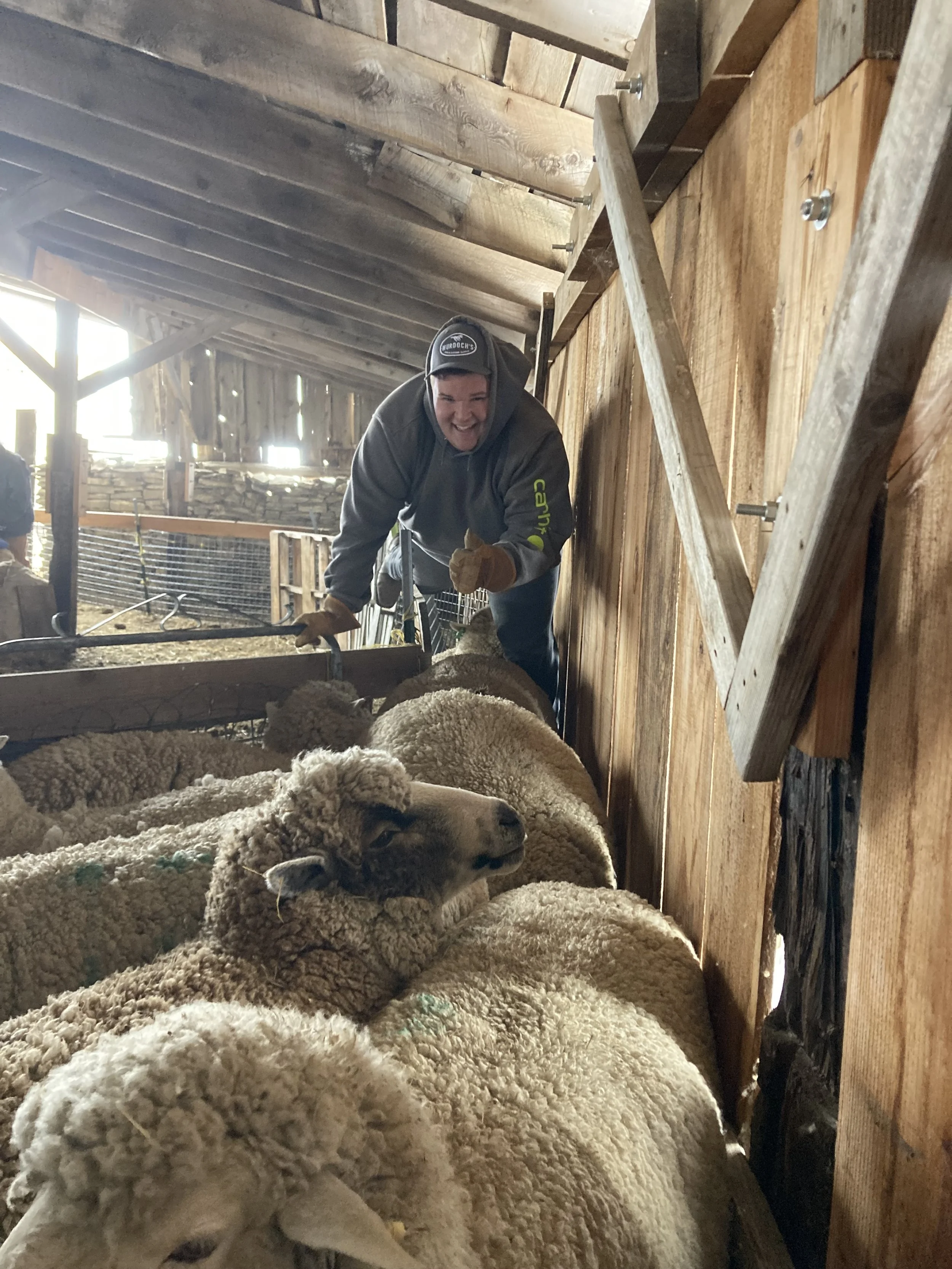Shearing Sheep
Jake, the sheep shearing crew boss, called me on Saturday evening, hoping to arrive at my barn on Monday morning.
I already had a big day of commitments on Monday so we settled on Tuesday morning instead.
As I scrambled to round up help, Jake dialed the other sheep producers in the area, coordinating shearing dates with them, too.
We both juggle many moving aspects of raising sheep.
Jake travels across Montana, Wyoming and even Hawaii with a crew that varies depending on the size of the flocks he will shear that week.
Each shearer is an independent contractor.
He gets paid per sheep and pays his travel expenses and taxes from that check. Shearing doesn’t come with health benefits.
Sheep need a haircut once each spring before they lamb, so shearing is not a year-round job unless one travels to the southern hemisphere.
That means each independent contractor has another job. He won’t take time away from that job unless he can make more money shearing.
Jake knows how many sheep each shearer can shear in a day – that number varies – and how many sheep need to be shorn at each ranch so he juggles supply and demand.
And the sheep producer’s schedule.
And the weather because wool won’t cut if it is wet.
Jake is on the phone a lot.
It was snowing and my sheep were wet when Jake called, but the forecast predicted sun by Tuesday.
Sunday was foggy, not ideal conditions to dry out wet wool.
I let the sheep sleep in my barn, where at least they might dry out a little.
Then I started calling people.
I needed six people along the alley so the sheep would funnel up a ramp and into Jake’s shearing trailer.
Three would sort groups into single file at the back of the line, one would keep them crowded together in the alley, one would vaccinate the ewes, and one would prod each ewe up the ramp.
Plus, I needed a cook or two because we all would be hungry at noon.
My mom and stepdad took on lunch, not knowing exactly how many they would be feeding.
It didn’t take long for my brother and two friends to clear their Tuesday schedules.
I wracked my brain for two more people who were willing, capable and available on short notice.
The Mormon missionaries jumped at the chance.
By Monday morning, both the fog and the sheep felt damp to my hand.
If they didn’t dry out, Jake and I both would be making more phone calls.
The sun peaked out by noon.
By 6 p.m., the sheep snuggled into my barn, warm and dry.
Whew!
Jake was happy to hear my news because all of the other producers in the area had wet sheep.
Jake had no backup plan.
Keeping the sheep in the barn before shearing has a second advantage.
It’s far easier to shear them when their bellies and bladders are empty.
I don’t have a trough in the barn and all of my hay is in the pasture.
So the next morning when I heard one of the shearers complain that I had not kept the sheep away from water, I might have used a few unprintable expletives.
After all, I had upheld my part of our venture.
When the shearers removed their earplugs and turned off their Toby Keith music for lunch, we had a tense little chat, finally agreeing that the sheep themselves had sucked all liquids up close and personal.
It had been the sheep, neither Jake nor I, who had not cooperated.
I know I need Jake’s expertise and Jake needs me.
Only the sheep don’t know they need both of us.
Silly sheep.
